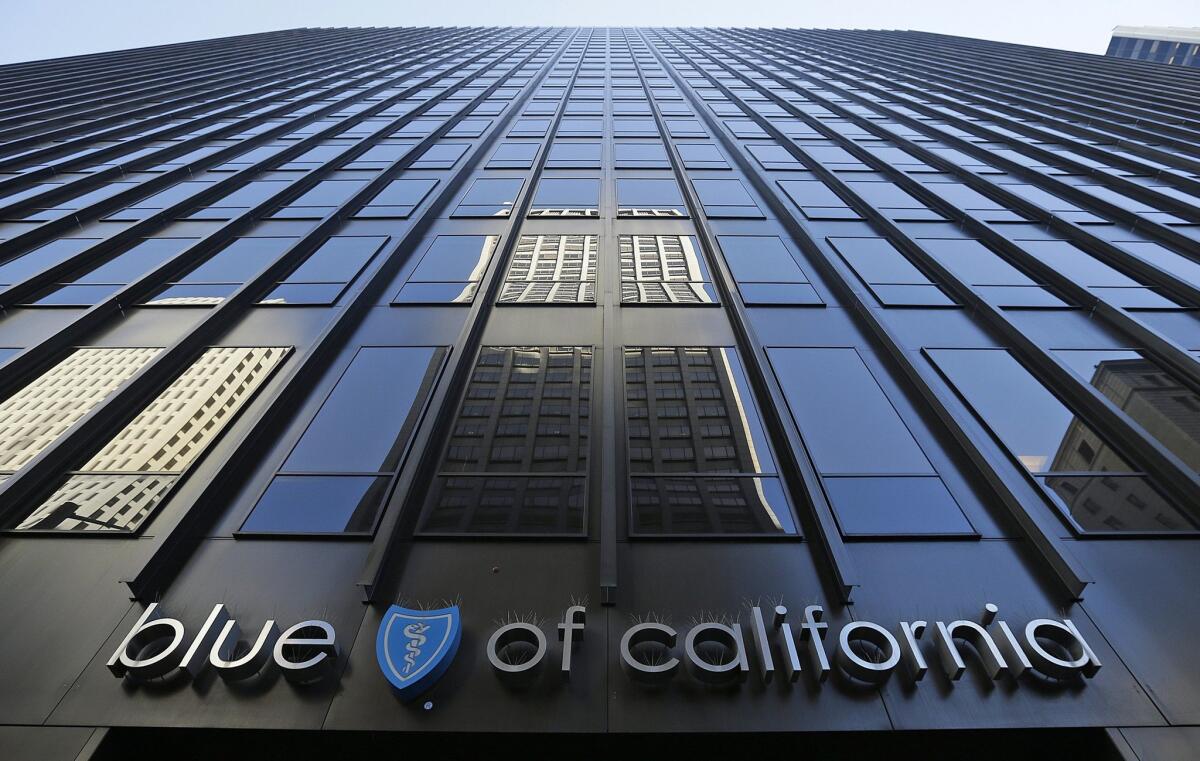Editorial: Just what did Blue Shield promise?

Blue Shield of California’s headquarters is in San Francisco.
To win state regulators’ approval for its purchase of a rival health insurer, Blue Shield of California promised (among other things) to contribute $14 million annually for 10 years to healthcare-related charities to improve access to care. Not long after the state issued a news release trumpeting that pledge, however, Blue Shield made it clear that it was not going to contribute $14 million more per year. In fact, executives said the nonprofit already had been contributing a considerably larger amount, on average, than $14 million. The new commitment, they said, simply set a floor for future donations.
Bait and switch? Not at all, the company insists. But the public could be forgiven for thinking that it’s getting less than the state promised.
Regulators shouldn’t need a billion-dollar merger as an excuse to prod managed-care plans to improve the care they provide or their customers’ access to specialists.
At issue is Blue Shield’s $1.1-billion purchase of Care1st Health Plan, a Los Angeles County-based insurer that offers managed-care plans for Medicare and Medicaid enrollees in California, Arizona and Texas. The deal had to pass muster with the California Department of Managed Health Care, and consumer advocates pushed the state to demand significant improvements in quality.
To that end, the department imposed a number of conditions when it approved the deal last month, demanding better quality-of-care ratings and more specialists in Care1st’s networks. It also required Blue Shield to invest $200 million over 10 years in various efforts to improve the healthcare system, including a new database to help enrollees in all health insurance plans find in-network doctors and hospitals. That’s a valuable service and one that will help Blue Shield too; the state has fined the company for doing such a poor job of providing accurate directories. The largest piece of the $200 million, however, was the $140 million over 10 years to improve access to care.
Yet as Blue Shield Chief Executive Paul Markovich explained to The Times, the company already gives about $35 million a year to its own foundation. In essence, its only commitment was not to cut the voluntary donations it already makes by more than 50%. The state’s Managed Health Care director disagreed, saying in a letter to Markovich that her department’s “expectation in approving the transaction was that Blue Shield would increase its overall charitable contributions to improve healthcare delivery in California.” But she conceded that “reasonable people may disagree,” essentially leaving it to Blue Shield to give more, not less.
Regulators shouldn’t need a billion-dollar merger as an excuse to prod managed-care plans to improve the care they provide or their customers’ access to specialists. A recent study by UC Davis showed that Medi-Cal enrollees who contract cancer fare almost as poorly as the uninsured, strongly suggesting that access to care is a real problem in that program. So the main goal for the state as it evaluated Blue Shield’s proposed acquisition was how to make sure the deal left consumers better off — particularly those in Medi-Cal, who have the fewest options for care. Markovich’s comments get the merged company off to an unpromising start in that regard. The state should make sure the company and future deal-makers honor both the letter and the spirit of all their commitments.
Follow the Opinion section on Twitter @latimesopinion and Facebook
More to Read
A cure for the common opinion
Get thought-provoking perspectives with our weekly newsletter.
You may occasionally receive promotional content from the Los Angeles Times.










